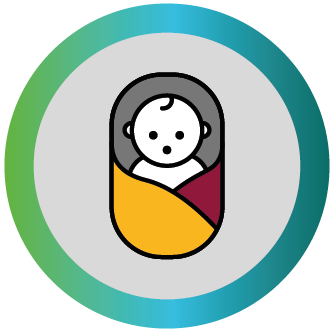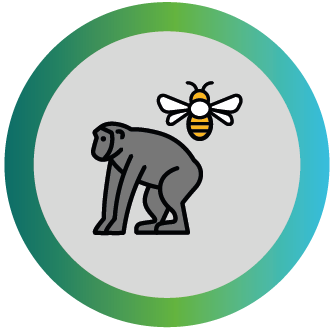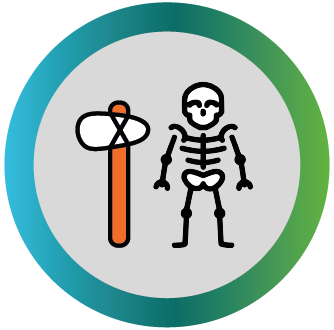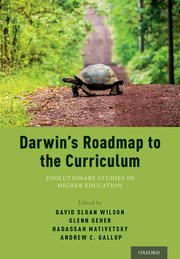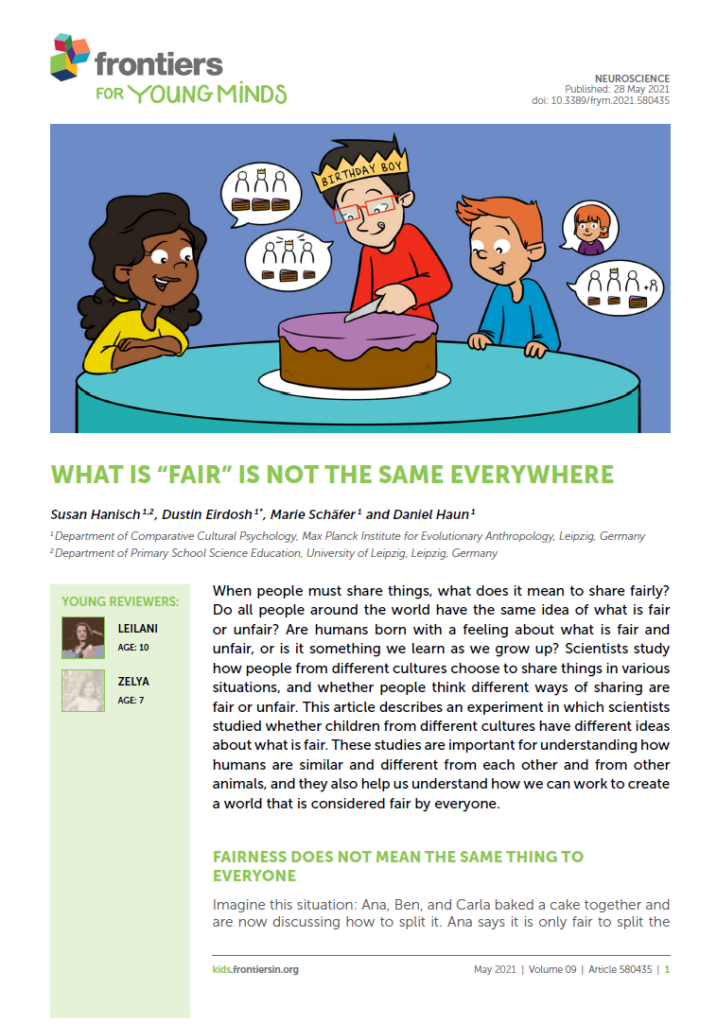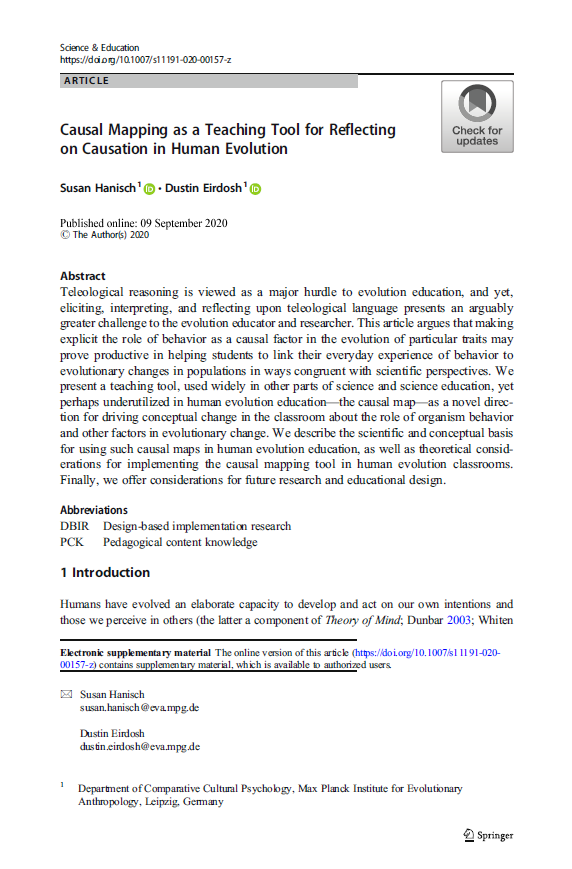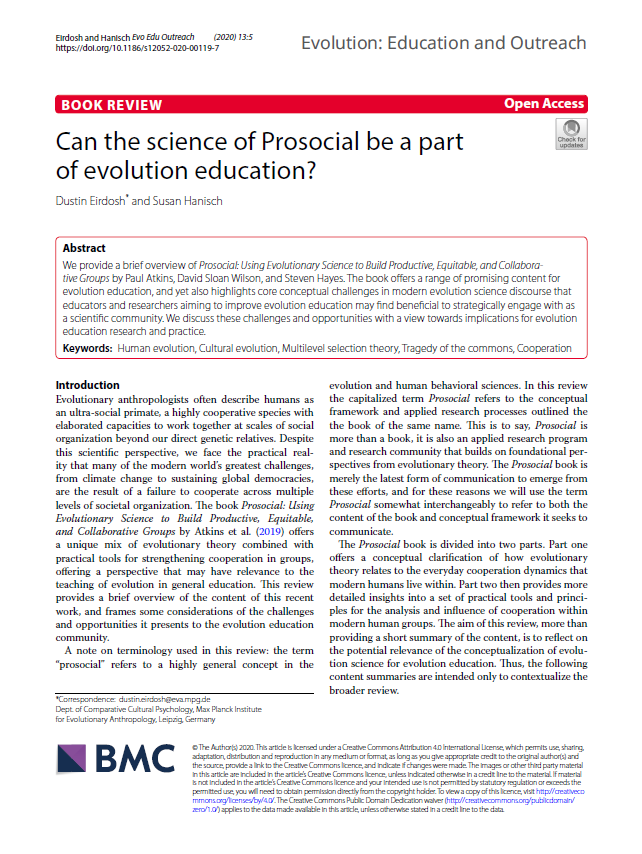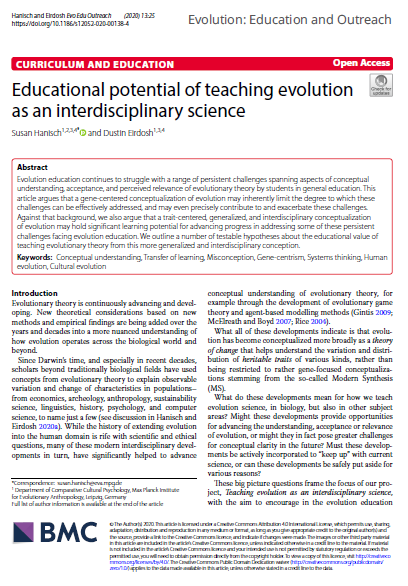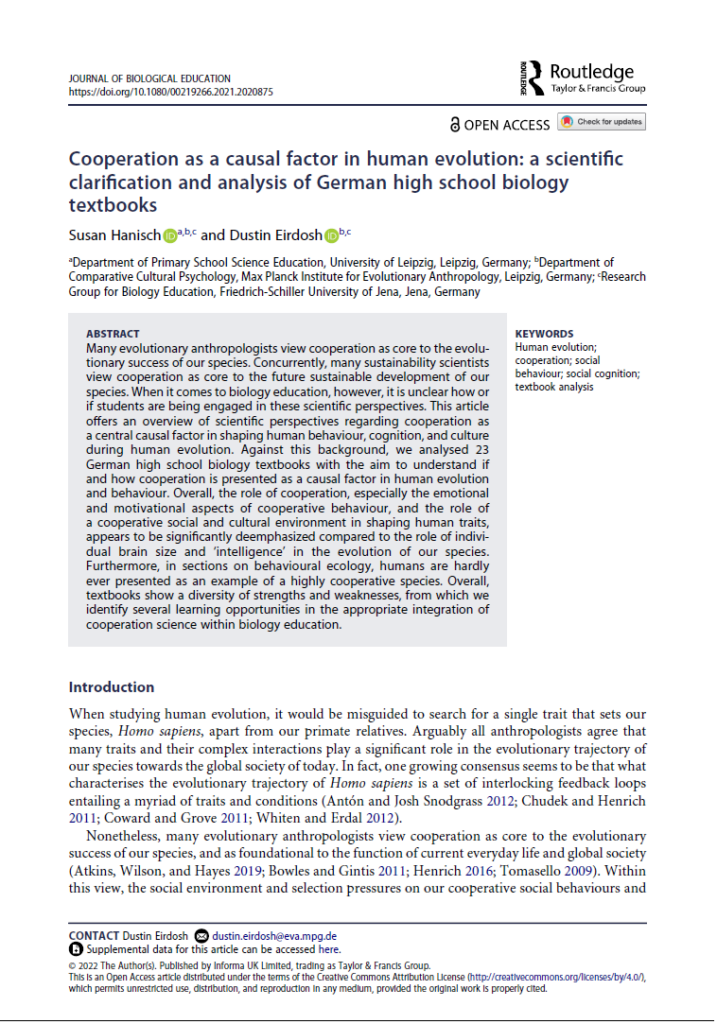Many evolutionary anthropologists view cooperation as core to the evolutionary success of our species. Concurrently, many sustainability scientists view cooperation as core to the future sustainable development of our species. When it comes to biology education, however, it is unclear how or if students are being engaged in these scientific perspectives. This article offers an overview of scientific perspectives regarding cooperation as a central causal factor in shaping human behaviour, cognition, and culture during human evolution. Against this background, we analysed 23 German high school biology textbooks with the aim to understand if and how cooperation is presented as a causal factor in human evolution and behaviour.

